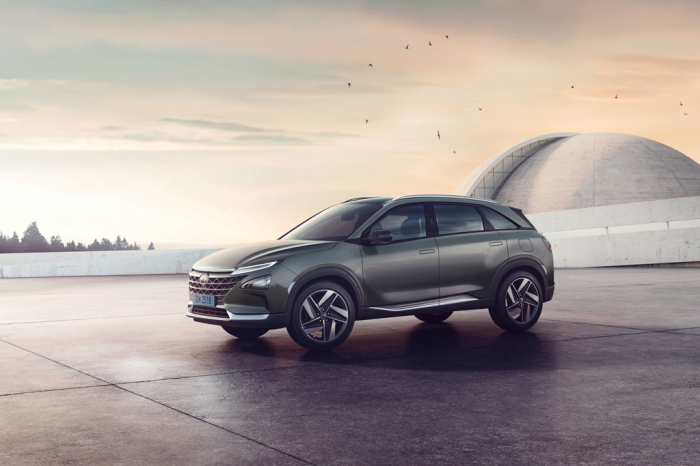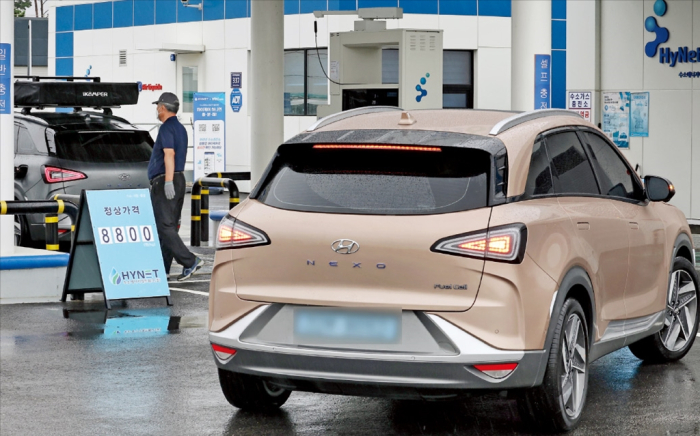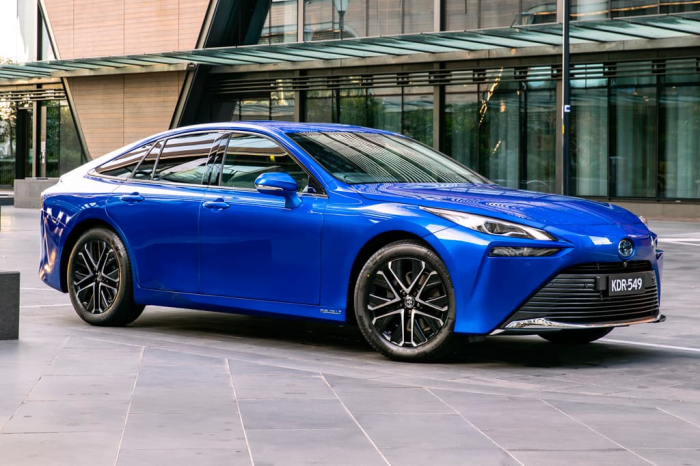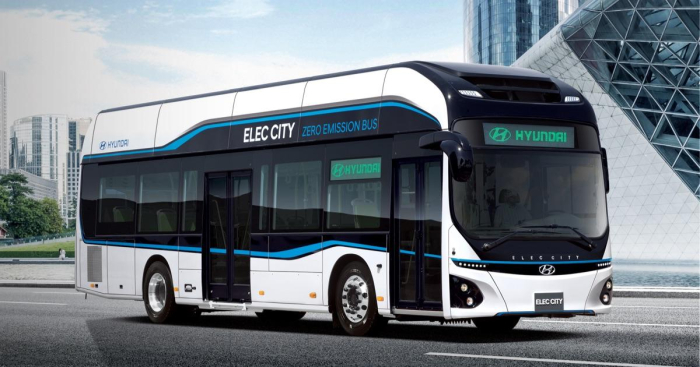Electric vehicles
Hyundai NEXO retains fuel cell EV leadership; Toyota Mirai follows fast
Lack of new FCEV models and insufficient hydrogen charging stations will likely stunt growth, analysts say
By Sep 11, 2023 (Gmt+09:00)
2
Min read
Most Read
LG Chem to sell water filter business to Glenwood PE for $692 million


Kyobo Life poised to buy Japan’s SBI Group-owned savings bank


KT&G eyes overseas M&A after rejecting activist fund's offer


StockX in merger talks with Naver’s online reseller Kream


Mirae Asset to be named Korea Post’s core real estate fund operator



South Korea’s top automaker Hyundai Motor Co. retained its leadership in the hydrogen fuel cell electric vehicle (FCEV) market in the January-July period but saw its market share quickly eroded by Japan’s Toyota Motor Corp.
According to market researcher SNE Research, Hyundai sold 3,662 units of its hydrogel FCEVs, including the Hyundai NEXO crossover and the hydrogen electric bus Elec City, in the first seven months of the year. The sales figure is down 40% from a year earlier.
With the sales volume, Hyundai topped the global FCEV market, garnering a 38.1% share. Compared with the year-earlier period, however, its market share fell by 19.2 percentage points.

The sales decline was due to the Hyundai NEXO’s weak performance, the research firm said.
By contrast, Toyota’s FCEV sedan, the Mirai, saw its sales rise 15.8% year on year to 2,884 units. Its market share increased by 6.6 percentage points to 30% over the same period.
Driven by the robust sales of the Mirai, Toyota narrowed its market share gap with Hyundai to 8.1 percentage points from 33.9 percentage points at the end of 2022.
LACK OF NEW MODELS, INSUFFICIENT CHARGING STATIONS
Analysts said they expect growth in the global hydrogen FCEV market to slow given the lack of hydrogen charging facilities and fewer new models than battery-powered electric cars.

The market’s overall hydrogen-powered car sales in the first seven months of the year reached 9,619 units, down 9.6% from a year earlier.
“Sales of the Hyundai NEXO will stay at the current level for the time being,” said an SNE Research official.
Meanwhile, Chinese fuel cell EV makers have posted decent growth so far this year.
King Long United Automotive Industry Co. saw its FCEV sales more than double to 866 units in the January-July period to rank third with a 9% market share.
Commonly known as King Long, the Xiamen, Fujian-based company makes electric buses, coaches and vans.
By country, Korea was the top hydrogen FCEV market in the January-July period, although its sales declined 38.7% from a year earlier. Korea’s market share shrank by 16.8 percentage points to 35.2%.

China ranked second with a 31.9% market share; its hydrogen car sales surged 66.8% during the period.
The US came third with a 24.3% market share, followed by Europe (5.9%) and Japan (2.4%).
In the global FCEV segment, Hyundai’s NEXO and Toyota’s Mirai have been competing for the top post since another major player, Japan’s Honda Motor Co., exited the market in June 2021.
Toyota launched its Mirai sedan in 2014 as the world’s first commercialized hydrogen fuel cell car.
Hyundai’s NEXO, a crossover utility vehicle based on the Korean automaker’s Tucson SUV platform, came out four years later.
Write to Sungsu Bae at baebae@hankyung.com
In-Soo Nam edited this article.
More to Read
-
 AutomobilesHyundai’s NEXO crossover tops world’s hydrogen vehicle market
AutomobilesHyundai’s NEXO crossover tops world’s hydrogen vehicle marketOct 11, 2022 (Gmt+09:00)
1 Min read -
 AutomobilesHyundai CEO says on track for hydrogen-fueled NEXO’s new model
AutomobilesHyundai CEO says on track for hydrogen-fueled NEXO’s new modelSep 01, 2022 (Gmt+09:00)
2 Min read -
 AutomobilesHyundai NEXO, Toyota Mirai to compete in fuel cell cars as Honda exits
AutomobilesHyundai NEXO, Toyota Mirai to compete in fuel cell cars as Honda exitsJun 18, 2021 (Gmt+09:00)
2 Min read -
 Hyundai exports hydrogen vehicles to world’s No. 1 oil producer Saudi Aramco
Hyundai exports hydrogen vehicles to world’s No. 1 oil producer Saudi AramcoSep 28, 2020 (Gmt+09:00)
1 Min read
Comment 0
LOG IN


